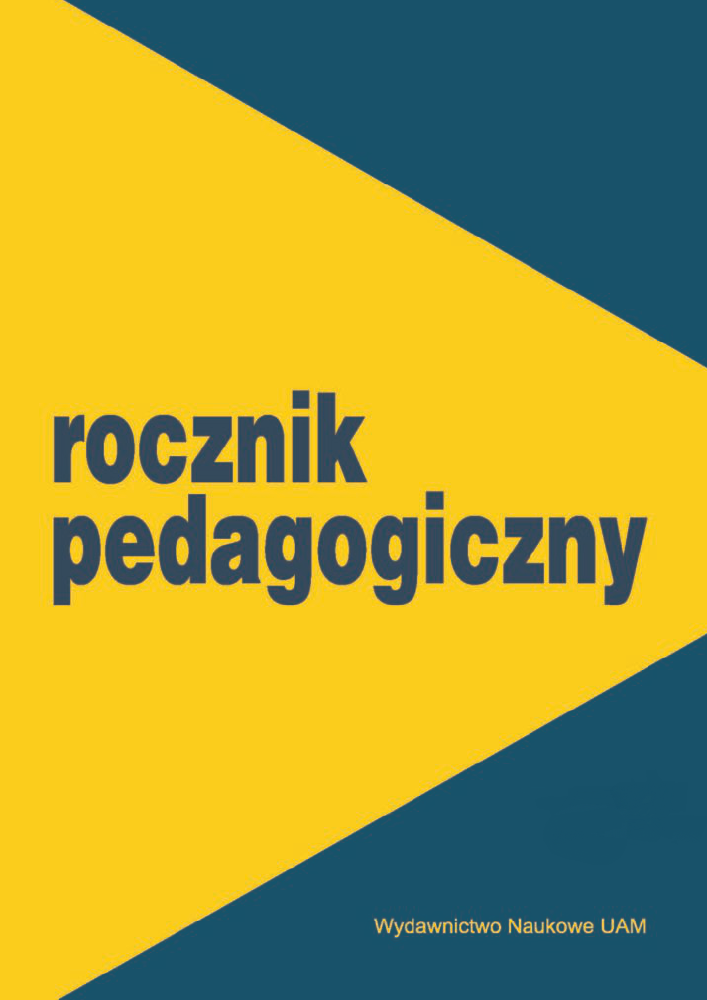Psychological well-being of Polish teachers and their attitudes towards distance education
during the COVID-19 pandemic
Psychological well-being of Polish teachers and their attitudes towards distance education
during the COVID-19 pandemic
Author(s): Barbara Jankowiak, Sylwia Jaskulska, Emilia SorokoSubject(s): Health and medicine and law, Sociology of Education
Published by: Uniwersytet Adama Mickiewicza
Keywords: attitudes toward distance education; psychological well-being; teachers; distance edu- cation; COVID-19 pandemic;
Summary/Abstract: Teachers’ attitudes toward distance education are crucial not only for school operations during theCOVID-19 pandemic but also for shaping the future educational landscape by teachers after ex-periencing distance education. According to the Job Demands–Resources Theory, well-being canbe an essential resource in managing workplace challenges. This article aims to describe Polishteachers’ attitudes toward distance education during the COVID-19 pandemic and how these at-titudes correlate with their well-being. The study also investigates the relationship between theseattitudes and sociodemographic characteristics (such as gender, seniority, employment at differentlevels of education, and school location). The sample consisted of 447 female (87.99%) and 61 male(12.01%) teachers across various educational institutions, including primary, general secondary,technical secondary, and sectoral vocational schools. The geographic distribution of these schoolsvaried, with the smallest number in rural areas (n = 100, 19.69%), bigger in small towns (n = 164,32.28%), and the largest in big cities (n = 226, 44.49%), whereas 18 people (3.54%) worked in morethan one location. The study used Spearman’s rho and ANCOVA to assess correlations betweenschool location and attitudes toward distance education, controlling for well-being. Although Polishteachers were initially reluctant about distance education, they recognized its potential in enhancingtheir professional competencies, which came as a smooth process. Teachers were confident aboutusing remote education solutions in the future, regardless of external pressures. However, they not-ed that while remote learning could cover the core curriculum, it was less effective for care andupbringing tasks. An important disadvantage of distance learning, according to respondents, is thatit exacerbates students’ differences. In terms of sociodemographic variables, compared to those inrural settings, teachers in large cities held more positive views on remote education. A positive cor-relation was found between teachers’ well-being and their attitudes toward distance learning duringa pandemic, with the exception of teachers working in rural areas. However, in the cities, the higherthe psychological well-being, the more positive attitudes toward online education. Well-being canbe seen as a resource that helps deal with difficult situations, such as the change in teaching duringthe COVID-19 pandemic from traditional to distance education. Therefore, it seems important tocreate a climate in educational institutions that is conducive to strengthening teachers’ well-beingresources. In the light of the study results devising solutions to bridge the gap between privilegedand underprivileged students seems to be important, especially during a pandemic or similar crises.
Journal: Rocznik Pedagogiczny
- Issue Year: 46/2023
- Issue No: 1
- Page Range: 57-79
- Page Count: 23
- Language: English

